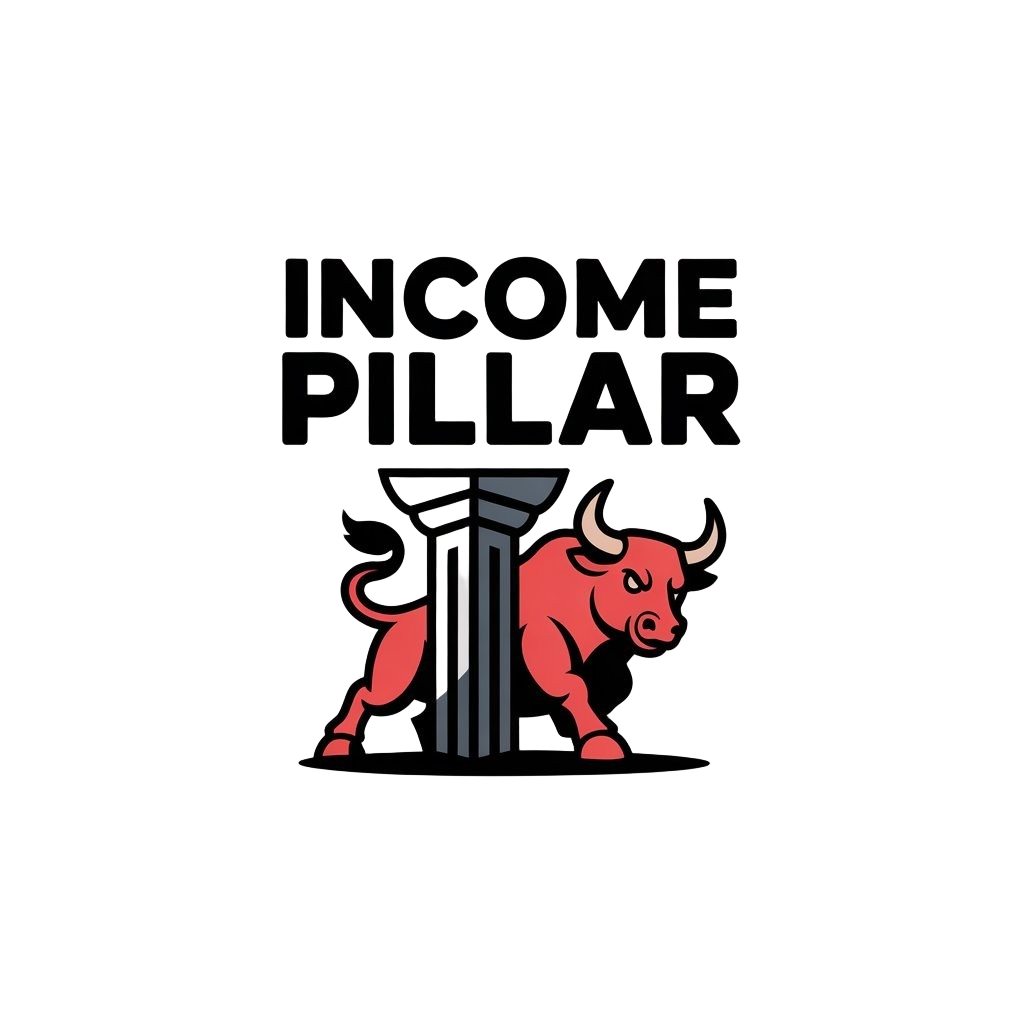Introduction
Financial freedom means having enough money to cover your living costs without depending on a regular job. It allows you to make choices that fit your life and dreams. This state is achieved by managing money wisely, avoiding debt, and making good financial decisions.
This article explores how smart money management helps you gain financial freedom. You will learn practical steps to plan, save, invest, and spend in a way that builds your wealth over time. Let’s start this journey to take control of your money and your future.
Set Clear Financial Goals
Setting clear financial goals gives your money management real direction. Without concrete targets, it’s easy for your budget and saving plans to feel aimless or scattered. When you define both short-term goals—like paying off a credit card within six months—and long-term ones, such as saving for retirement, you create a roadmap for where your money should go.
These goals influence how you allocate your funds month to month. For example, if your priority is building an emergency fund, your budget will need to include a regular saving portion, even if it means cutting back on other expenses.
Identifying what matters most helps keep you focused. Maybe paying down debt feels urgent, while investing seems distant and uncertain—that’s okay. Your goals can shift with your life circumstances.
To stay motivated, break big goals into smaller, manageable steps. Instead of saying “I want to save $10,000,” try aiming for saving $500 a month. It’s easier to track progress and celebrate small wins along the way. Realistic and specific goals prevent overwhelm and keep you accountable.
Create a Budget That Works
Making a simple budget is one of the most straightforward ways to manage your income and expenses. It might feel a bit tedious at first, but once you get the hang of it, a budget clarifies where your money actually goes. You don’t have to start complicated; just list your monthly income and then your essential costs—like rent, utilities, groceries, and transport. From there, you can see how much is left for other things or savings.
Tracking your spending can be as easy as jotting down expenses in a notebook or using apps like Mint or You Need a Budget (YNAB). These tools help you spot patterns—maybe you realized last month you spent more than you thought on takeout or subscriptions you barely use.
Budgets aren’t set in stone. If your income changes or unexpected expenses pop up, tweak the numbers. Maybe cut back on non-essentials for a while or adjust your saving goals. The key is staying flexible without losing sight of what matters most to you.
Build Emergency Savings
Unexpected expenses happen. Maybe your car breaks down, or a sudden medical bill appears. These moments can throw your finances off balance if you’re not prepared. That’s why building an emergency fund matters—it provides a safety net, a sense of control when life feels unpredictable. You don’t have to worry as much, and that peace of mind is something many people overlook until it’s too late.
Start small. Even if you save just five or ten dollars a week, those amounts add up over time. For example, putting aside $10 every week becomes $520 in a year. It feels manageable and doesn’t require drastic lifestyle changes. You might think you can’t save more right now, but the key is consistency. Small wins still count.
Setting a clear goal makes saving easier. Aim for about three to six months’ worth of essential expenses. Break that target down:
- Calculate your basic monthly expenses like rent, food, utilities.
- Multiply that by the number of months you want to cover.
- Divide the total by how many weeks or months you plan to save.
Approach this step by step. Adjust as necessary, but keep the goal in sight. It might take time, but having that fund means less stress when life throws curveballs. And really, isn’t that worth trying for?
Manage and Reduce Debt
Debt can feel like an invisible chain holding you back from financial freedom. It’s tricky because not all debt is the same, and some of it creeps up quietly. The weight of owing money, especially with high interest rates, slowly eats away at your ability to save or invest for the future. If you want to manage your money better, getting a grip on debt is essential.
Understand Your Debt
The first step is to list every debt you have. Write down the balances, interest rates, minimum payments, and due dates. Seeing everything clearly can be surprising—sometimes you find debts you forgot about or realize how much interest piles up each month. Knowing these details matters because without clarity, any plan you make will be shaky.
Create a Payment Plan
Once you know what you owe, set up a payment strategy. Focus on paying more than the minimum on the highest interest debts while keeping up minimum payments on the rest. This method can save you money and time in the long run. You might find it hard at first, maybe you’ll even question if you should pay off smaller debts first for morale. That’s okay. The key is consistency and gradually chipping away rather than feeling overwhelmed.
Save for Your Future
Saving for your future, especially retirement and long-term goals, isn’t just a good idea—it’s essential. While it might feel far off or even a bit abstract right now, the reality is your future self will thank you for starting to save sooner rather than later. Time plays a surprisingly big role in how your money grows, often more than how much you put in.
You have several options when it comes to saving. Traditional savings accounts, for example, offer easy access but typically lower interest. On the other hand, dedicated retirement accounts can be more rewarding if you’re willing to let your money rest and grow. I know, it’s tempting to dip into your savings, but holding off can make a huge difference.
Use Retirement Accounts
Retirement accounts like 401(k)s, IRAs, or Roth IRAs are designed precisely for growing your money over decades. They have some benefits that you might find worthwhile:
- Tax advantages: You either defer taxes now or pay less tax later.
- Employer contributions: Sometimes your company adds money, which feels like free cash.
- Compound growth: Earnings from your investments generate more earnings, building slowly over time.
Though the rules around these accounts can feel complex—like contribution limits or withdrawal penalties—once you get used to it, they can become the backbone of your retirement plan.
Keep Saving Consistent
The biggest difference in saving isn’t just how much, but how often you add to your accounts. Regular contributions, even if small, create a habit that adds up. Think of it like watering a plant consistently versus forgetting for weeks. The consistency slowly builds a solid financial cushion.
You might miss a month now and then. Life happens, right? But if you can mostly stick to a schedule, your savings grow faster than you might expect. I remember feeling skeptical about automating contributions, but honestly, it almost removes the mental burden from saving, letting your money work quietly in the background.
Invest to Grow Wealth
Investing plays a key role in building financial freedom. Saving money is great, but investing helps your money grow over time, potentially outpacing inflation. Think of investing as putting your money to work instead of just letting it sit idle.
Let’s unpack a few basic terms you’ll hear often:
- Stocks are shares of ownership in a company. When the company does well, your shares might increase in value.
- Bonds are like loans you give to governments or companies; they pay you back with interest.
- Mutual funds pool money from many investors to buy a variety of stocks and bonds, spreading out the risk.
Starting small is really okay, almost necessary. You don’t need a fortune to begin. Someone I know started with just $50 a month and gradually learned as they went. The important part is to get familiar while your amounts are manageable.
Questions you might be asking yourself: Which investment fits my style? How safe is it? The answer often lies in diversifying and investing regularly. You don’t need to pick winners every time. Over time, small, steady investments have a way of building real wealth.
Spend Wisely Daily
Your daily spending habits quietly shape your path to financial freedom. It’s not just the big purchases or investments that matter, but those small, seemingly harmless decisions you make every day. A coffee here, a quick online deal there—they add up. Sometimes, you might not even realize how much those little spending choices chip away at your future goals.
Making smarter spending decisions doesn’t mean giving up on enjoying life. Think of it as choosing moments that truly satisfy you rather than grabbing whatever feels good in the moment. Before buying, pause and ask yourself: “Will this bring lasting value or just temporary pleasure?” You might find that skipping one unnecessary purchase frees up money for something more meaningful later.
Avoid Impulse Buying
Impulse purchases are tricky because they hijack your intentions. I’ve caught myself adding items to the cart just because they were “on sale,” but later wondered if I really needed them. Here are some tips that help resist that urge:
- Wait at least 24 hours before buying anything non-essential.
- Make a list before shopping and stick to it.
- Unsubscribe from marketing emails that push temptations.
- Ask yourself why you want the item—need or want?
This little breathing room often calms impulse urges. You might discover that many impromptu purchases don’t feel great afterward.
Choose Value Over Price
When deciding what to buy, focusing only on the price tag can be misleading. Sometimes, the cheapest option ends up costing more over time due to poor quality or short lifespan. I’ve learned this the hard way with shoes that looked affordable but wore out fast, forcing me to replace them quickly.
Instead, try thinking about value. Ask questions like:
- Will it last a long time?
- Does it serve multiple purposes?
- Will it genuinely improve your life or save time?
Choosing quality over a lower price can lead to fewer purchases overall and less waste. It feels better too because you’re investing in something worthwhile, not just chasing the cheapest deal. That way, your money stretches further without you needing to scrimp or sacrifice everyday happiness.
Keep Learning and Adapting
Financial freedom isn’t a one-time achievement. It’s more like a journey where your strategies and habits need to grow along with you. Life throws curveballs—new jobs, family changes, unexpected expenses—and your money management should keep pace.
Staying curious about finances helps prevent stagnation. Try reading different sources: personal finance blogs, books from credible authors, or even podcasts that break down complex topics into simple ideas. Don’t hesitate to ask questions, too. Talking with a trusted friend, a financial advisor, or even someone who’s been through similar money challenges can reveal blind spots you might miss alone.
As your circumstances shift, so should your plans. Maybe you received a raise, or your expenses increased after moving to a new city. Updating your budget, adjusting savings goals, or rethinking investment approaches isn’t a sign of failure—it’s adapting. Regularly review what’s working and what’s not, maybe quarterly or after major life events, and tweak your plan accordingly.
Do you ever wonder if your current approach will hold up in the future? Staying open to learning and change keeps you sharper. After all, mastering your finances is less about rigid rules and more about being flexible and informed as things evolve.
Conclusions
Smart money management is the key to unlocking financial freedom. By planning your finances, saving regularly, managing spending, and investing, you build a secure money foundation. This freedom lets you focus on what matters most in life.
Start with small steps like budgeting and tracking expenses. Then grow your knowledge and skills to make smart financial choices. Your journey to financial freedom begins with simple money habits you practice every day.






















